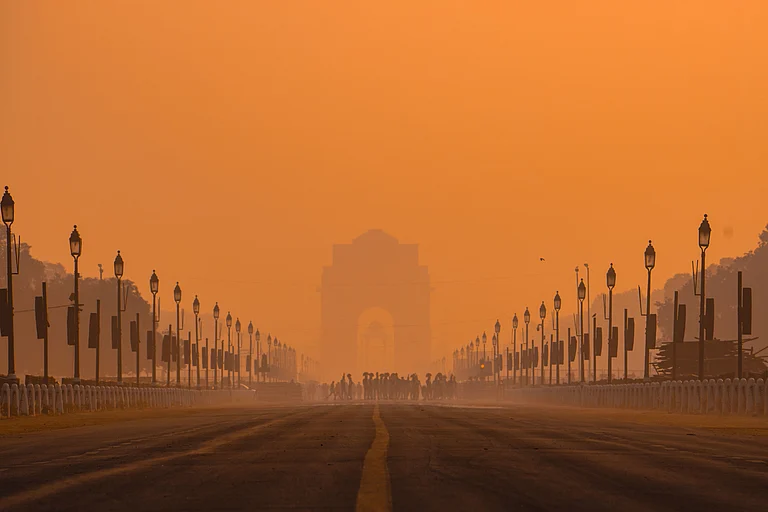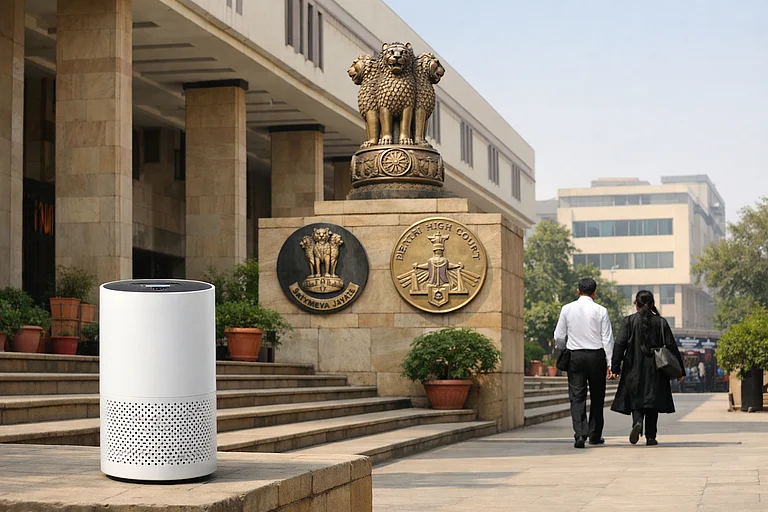
Summary of this article
Delhi's air quality index hits 311, categorised as 'very poor'.
Old age homes implement air purifiers and limit outdoor activities.
Schools conduct classes indoors and advise students to wear masks.
From installing air purifiers and limiting outdoor activities to distributing masks and growing house plants, old-age homes and schools in Delhi are taking extra steps to protect the elderly and children as the city continues to battle poor air quality.
There was no respite from the city's pollution woes on Tuesday, as the air quality remained in the 'very poor' category, with a reading of 311.
Harsh Kumar, owner of the Second Inning Old Age Homes in Vasant Kunj, said many elderly residents suffer from Chronic Obstructive Pulmonary Disease (COPD), making the current pollution levels particularly hazardous for them.
"We have installed multiple air purifiers in our two homes. Whenever any of our residents has to go out, we make sure they wear a mask. However, during this season, we mostly keep them indoors," he said.
COPD is a group of progressive lung diseases that block airflow and make breathing difficult.
Similarly, Gurupreet, who works at Guru Vishram Vridh Ashram in Badarpur, said masks have been distributed to all residents, and air purifiers have been installed.
"We have cut down outdoor activities as much as possible, but these elderly people need to walk to stretch their muscles. Normally, they sit outside or go for walks freely, but during peak pollution, we allow them out only for 10 to 15 minutes, ensuring they wear masks," she said.
At Kamla Bakshi Elders Home Society in Rohini, caretaker Narottam Kumar said air purifiers and masks offer only temporary relief and that many elderly people feel suffocated while wearing them.
"Our elder home is spread over two acres, and we have planted trees and created a small garden that keeps the air cleaner. Fortunately, our residents have not faced any health issues," he said.
Schools, too, are taking similar measures to protect students.
Mallika Preman, principal of Tagore International School in East of Kailash, said, “Whenever pollution levels are high, we conduct sports classes indoors. Students have been advised to wear N95 masks. We have also placed air-purifying plants like spider and snake plants in classrooms.” Spider plants are known for filtering pollutants, while snake plants convert carbon dioxide into oxygen even at night.
Sudha Acharya, principal of ITL International School in Dwarka, said the school has restricted outdoor activities and encouraged sustainable practices such as carpooling and public transport.
"We are also advising students to stay hydrated, use masks, and eat antioxidant-rich meals. An advisory has been issued for parents, especially those whose children have asthma or other pulmonary issues," she added.
City's four stations -- Alipur (421), Wazirpur (407), Bawana (402) and Anand Vihar (412)-- recorded air quality in the 'severe' category.
Seventeen monitoring stations recorded 'very poor' air quality with readings above 300, the Central Pollution Control Board's (CPCB) Sameer app showed.
An AQI between 0 and 50 is considered "good", 51 to 100 "satisfactory", 101 to 200 "moderate", 201 to 300 "poor", 301 to 400 "very poor" and 401 to 500 "severe", as per the CPCB classification.

















